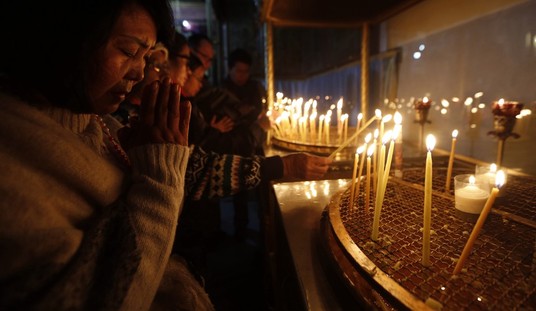It is disturbing, to say the least, how little deference the president and the administration give to the strictures of the Constitution and existing law. Whatever suits Obama’s partisan political interests takes precedence, regardless of the cost to us. However, it is heartening that judges are increasingly unwilling to let this rampage continue.
The most recent example involves the planned nuclear-waste repository at Yucca Mountain in Nevada.
Almost everyone acknowledges that nuclear power is clean and safe, even though there has been a decades-long campaign against it by ill-informed advocacy groups. The remaining concern about nuclear energy in this country, for some decades, has been how to dispose of the spent fuel created in the electrical generation process. In Europe, they have largely dealt with this problem by reprocessing that fuel and reusing it to create more energy. In this country, that option was discarded years ago in favor of long-term geological storage. Decades of expensive studies zeroed in on Yucca Mountain as the best site for such storage.
Presently, the nuclear waste generated by energy and weapons production is being stored in vulnerable storage facilities throughout the country, waiting for transfer to Yucca Mountain. The cost of that facility has been borne largely by electricity consumers paying into a nuclear-waste fund — already, $10 billion has been spent on developing Yucca.
Many Nevadans don’t like the idea of the repository. To garner these votes, candidate Barack Obama contended that he had questions about the safety of the storage facilities there and that he wanted to further study the issue. With the reelection of Harry Reid in jeopardy, last fall Obama signed into law a spending bill funding energy and water programs for 2010 that contained a provision to close down the Yucca nuclear-waste repository. The Department of Energy, which had earlier filed an 86,000 page application with the Nuclear Regulatory Commission (NRC) to open the nuclear-waste dump, sought to withdraw that application under the new leadership.
That move was opposed by Washington and South Carolina — states which contain major accumulations of waste from nuclear-weapons production. The move was also opposed by the Nuclear Energy Institute (the trade association of the nuclear industry) and the National Association of Regulatory Utility Commissioners (state official members of public service commissions) who petitioned the NRC for relief. The commission agreed with the petitioners, saying the Department of Energy had no authority to flout the Nuclear Waste Policy Act of 1982, Public Law 97-425. The panel observed that DOE had not, in seeking to withdraw its application, argued that the site was unsafe or that there was something wrong with the lengthy application. Its sole explanation for the turnabout was that the long-studied and planned for site was “not a workable option.”
It may be that the technology for processing spent fuel, and a future increased reliance on nuclear energy, requires a re-examination of that law and an amendment to it. But simply leaving that law on the books, collecting billions for storage there and storing nothing, and simply cutting off funds for the continuation of the program is not consistent with the obligation of the federal government. Certainly requiring geological storage and denying the facilities to do so creates a burden on the security forces of the states where the waste is located, and acts as a deterrent to expansion of vitally needed nuclear production facilities.
The failure of Energy Secretary Steven Chu to justify his department’s conduct is on par with the failure to justify Interior Secretary Ken Salazar’s moratorium on deepwater drilling. Twice now, in a short span of time, the administration has made moves that substantially impact the production of domestic energy. It has done so with no respect for the requirements of the law or the many economic interests involved.
Twice now, the moves have been thwarted as being incompatible with existing law.
The similarity to the drilling moratorium does not end there. The Interior Department, rebuffed by both a federal district court and a court of appeals, has just announced a new drilling moratorium, and the Energy Department could still be victorious on withdrawing the application when the full commission hears the case. Indeed, the NRC hasn’t even waited for Secretary Chu to appeal the decision before asserting jurisdiction and seeking filings by July 16. And there’s no reason to believe that the full panel will provide a fair resolution of the matter:
Senate Majority Leader Harry Reid, D-Nev., has long opposed the Yucca site in his home state. Washington’s own Sen. Patty Murray, an unfailing champion of the Yucca site, nailed Energy Secretary Steven Chu when he could not produce any scientific reason for the decision.
Three of the five NRC members promised not to get in the way of Obama’s Yucca decision at their confirmation hearings. The fourth, whom Obama appointed as chair, was Reid’s former science adviser and, when he joined the commission in 2005, voluntarily recused himself from Yucca Mountain decisions but only for a year.
The deck certainly seems stacked here.
The decision by the panel seems well-justified. Will a stacked NRC require that the matter go through judicial review to compel compliance with the law? In the meantime, if the government refuses to fund the facility, what will happen? Perhaps the drilling situation portends the future: companies are shifting their rigs out of the Gulf even though the initial drilling moratorium was ordered lifted, because of the substantial uncertainties created.









Join the conversation as a VIP Member